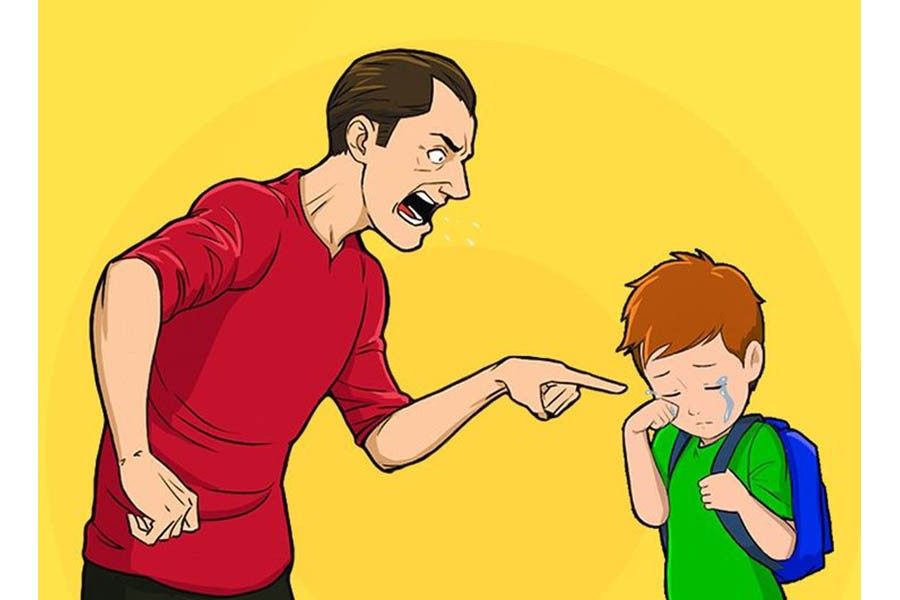A common question that frequently pops up in discussions is why do many parents torture their children and drain their mental health.
It is speculated that since parents do not have a guidebook about parenting to follow, they often don’t realise how their behaviour impacts their children's lives.
Parents have a massive responsibility as their little baby grows into an adult. People could learn more about how to raise children if there was a manual for it. Due to lack of defined guidelines, everyone uses a different technique to handle their child.
Knowing how to handle children in different phases of their lives is imperative. When they are children, the parents have to lay out their foundation.
Children imitate the ones around them. They copy behaviour, personality and language. The parents need to ensure to behave appropriately in front of their children.
Adolescents and motivation
During their teenage years, hormones play a vast role in the changing patterns of behaviour of adolescents. The parents have to handle different types of emotions cautiously during this period. Mismanagement of their rage, sorrow and other emotions could bring overwhelming consequences.
Motivation is more efficacious than criticisms and comparisons when the child is coming of age. The child needs support and comfort during that phase. However, most parents choose to be cavil as they assume it is for the betterment.
Some parents try to impose their unfulfilled dreams onto their children. They don’t realise their children are different individuals and are entitled to have their own plans and goals.
Scarcity of privacy
Privacy is one of the many concerns in parenting. Sons and daughters of this country don’t receive any privacy even when they are adults.
Sometimes, daughters are accompanied by their parents in their university as well. The parents assume they are protecting their children. In fact, this lack of freedom makes them dependent and survival becomes difficult. They often become antisocial, which is harmful for their career.
As a result, kids start to hide matters from their parents. When they become adults, they do not consider dishonesty to be dreadful.
Good manner teaches good manner
Other complaints include the lack of mannerisms of the parents in front of their children.
“When children see their parents fight in front of them, it puts a negative impact on their mind. It’s important to provide a joyful environment for a child’s mental health. This should be taught to everyone before they consider having a child,” shared Mohammad Hossain Leen, a 20-year-old student of GED in Pie Education.
It is another recurrent scenario when kids are compared with their meritorious cousins or neighbours. This belittles the individual even when they are grown up.
They feel like they are always in competition and are not good enough. Traumatised childhood results in insecure adults.
When parents taunt their children for living under their roof and feeding them, they forget that they are doing it because the child is their responsibility. They are bound to do it as long as they are not capable of providing for themselves.
They surely do not mean any harm to their beloved children by those taunting. However, they should be aware of the fact that they are creating problems unknowingly or unintentionally.
Breaking the cycle of ‘Our parents used to do this to us’
“Parents tend to treat their child the way they were treated as a child. They need to understand that there is a generation gap and people evolve; the world is constantly evolving.”
“Parents need to be taught that they are in a different era. Hence, their child requires different things than they did when they were kids,” Tiasha Akter, a second-year Bangladeshi student of Transactional Medicine at Universita del Piemonte Oriental, which is situated in Italy, complained while hoping that modern day parents will break the tradition cycle.
Some parents spoil their children with expensive goods while making them feel abandoned. They assume providing tangible materials is enough.
The reality is different. Children become emotionally detached from their parents because of a lack of interaction.
Consequently, they seek comfort in other things, mostly drugs, due to neglect. Most children end up developing ‘attachment disorders’.
Moral learning, a better solution
“Issues such as parenting depend greatly on social and economic background, which varies from person to person. A single curriculum cannot cover all, and some contexts may not be applicable to others,” informs Sk Fuad M Zico, who’s a teacher in British Standard School.
“Instead of parenting as a subject, the educational institutes should focus more on moral and ethical values, which would enable somebody to be a decent human being with a compassionate thought process,” recommends the IGCSE and IAL Chemistry teacher.
The failure to realise the right ways of parenting causes suffering to millions of children.
It is imperative for the education systems to consider these issues in order to build a nation with children who are not held back because of their family issues.


